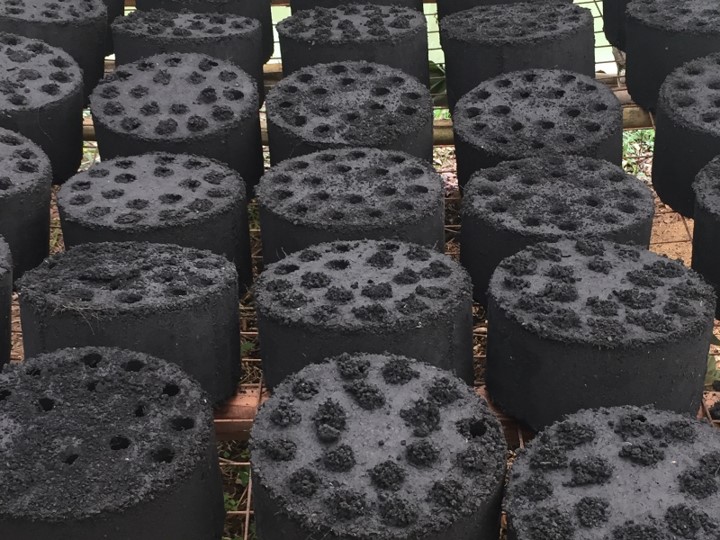PAVITR
EU
India
Potential and Validation of Sustainable Natural & Advanced Technologies for Water & Wastewater Treatment, Monitoring and Safe Water Reuse in India

Training and Coaching of Resource Recovery and Reuse Businesses and Start-ups in Uganda

Clients
Deutsche Gesellschaft fϋr Internationale Zusammenarbeit (GIZ) GmbH, Reform of the Urban Water and Sanitation Sector (RUWASS) Programme, Kampala, Uganda (2015 – 2017)
Deutsche Gesellschaft fϋr Internationale Zusammenarbeit (GIZ) GmbH, Enhanced Water Security and Sanitation (ENWASS) Programme, Kampala, Uganda (2018 – 2019)
Beneficiaries
Established Ugandan RRR businesses and start-ups.
Key Partners
Kampala Capital City Authority (KCCA)
Makerere University Business School (MUBS)
Makerere University College of Engineering, Design, Art and Technology (CEDAT)
Swiss Federal Institute of Aquatic Science and Technology (Eawag)
Sanivation
Like many other cities in developing countries, Uganda’s capital Kampala is experiencing rapid population and economic growth. However, providing critical services, including adequate sanitation for the city population, has not been in tandem with these developments. Especially in poor urban areas and informal settlements, access to sanitation is inadequate, and collection, transport, and faecal sludge treatment remain a significant challenge. It is against this backdrop that the Reform of the Urban Water and Sanitation Sector (RUWASS) and the Enhanced Water Security and Sanitation (ENWASS) programmes implemented by the Deutsche Gesellschaft fϋr Internationale Zusammenarbeit (GIZ) GmbH the supported the Kampala Capital City Authority (KCCA) and other key stakeholders in improving the sanitation sector of Kampala, under a co-funding arrangement from the German Government (Federal Ministry for Economic Cooperation and Development, BMZ) and the Swiss Government (Swiss Agency for Development and Cooperation, SDC).
Drawing on the results of the first phase (implementation period: 2011 – 2014) of the Resource Recovery and Safe Reuse (RRR) Project that the Swiss Agency funded for Development and Cooperation (SDC), the project aimed at empowering the private sector through training and coaching entrepreneurs in the translation of RRR business models into actual businesses. As a result, both established businesses and start-ups that recover and reuse nutrients, water and energy from liquid and solid waste streams (predominantly faecal sludge) received business development support in extending the scope of their current business with a RRR business component or establishing a new RRR business.
We, as seecon, conducted the following activities:
Explore and discover
Perform financial analysis of briquette businesses and Decentralised Faecal Sludge Treatment (DEFAST) plants in Uganda.
Develop an Excel-based Financial Analysis Tool to perform broad-brush financial and sensitivity analysis based upon readily available financial and production-related data.
Performing Contribution Margin Analysis (CMA) for briquette businesses.
Co-create and design
Develop a RRR business development training course.
Incorporate RRR contents into existing business and management education programs of MUBS Entrepreneurship Centre.
Empower
Perform Train-of-Trainers (ToT) of MUBS Entrepreneurship Centre’s staff in RRR business development activities.
Deliver face-to-face and long-distance coaching and mentoring of RRR start-ups.
Reach and connect
Develop and implement communication and dissemination strategy.
Prepare, deliver and follow up concerning a series of 1-day Business Model Development Ateliers to introduce and promote the business model thinking process.
Prepare, deliver and follow up concerning a series of multi-day Smart Start-Up Programmes consisting of training and coaching sessions.
Prepare, deliver and follow up concerning half-day communication and networking events (“Road Shows”).
Organise Business Ideas Competition to select start-ups to receive advanced support in setting up their business in close collaboration with MUBS, CEDAT, KCCA and GIZ.
Prepare, deliver and follow up concerning knowledge exchange workshop.
Development of a teaching case to be used in business development activities at MUBS.
Prepare, deliver and follow up concerning RRR-side-events at 5th Faecal Sludge Management Conference (FSM5) in Cape Town, South Africa.
Summary on RRR and Public-Private Partnerships (PPP) for Faecal Sludge Management (FSM) Side Events the 5th International Faecal Sludge Management (FSM5) Conference in Cape Town, South Africa
This report reflects opportunities and common challenges faced by micro-, small- and medium-sized businesses in RRR across the sanitation service chain, lessons learnt and critical recommendations for future business development support in Uganda.
The document provides background information and a rough financial analysis of two Ugandan Decentralised Faecal Sludge Treatment plants.
A free of charge Excel tool to perform broad-brush financial and sensitivity analysis based upon readily available financial and production data.
You are interested in offering business development support to established RRR businesses and start-ups but lack an implementing organisation? Please contact us to learn more about training and coaching offers.
Contact us